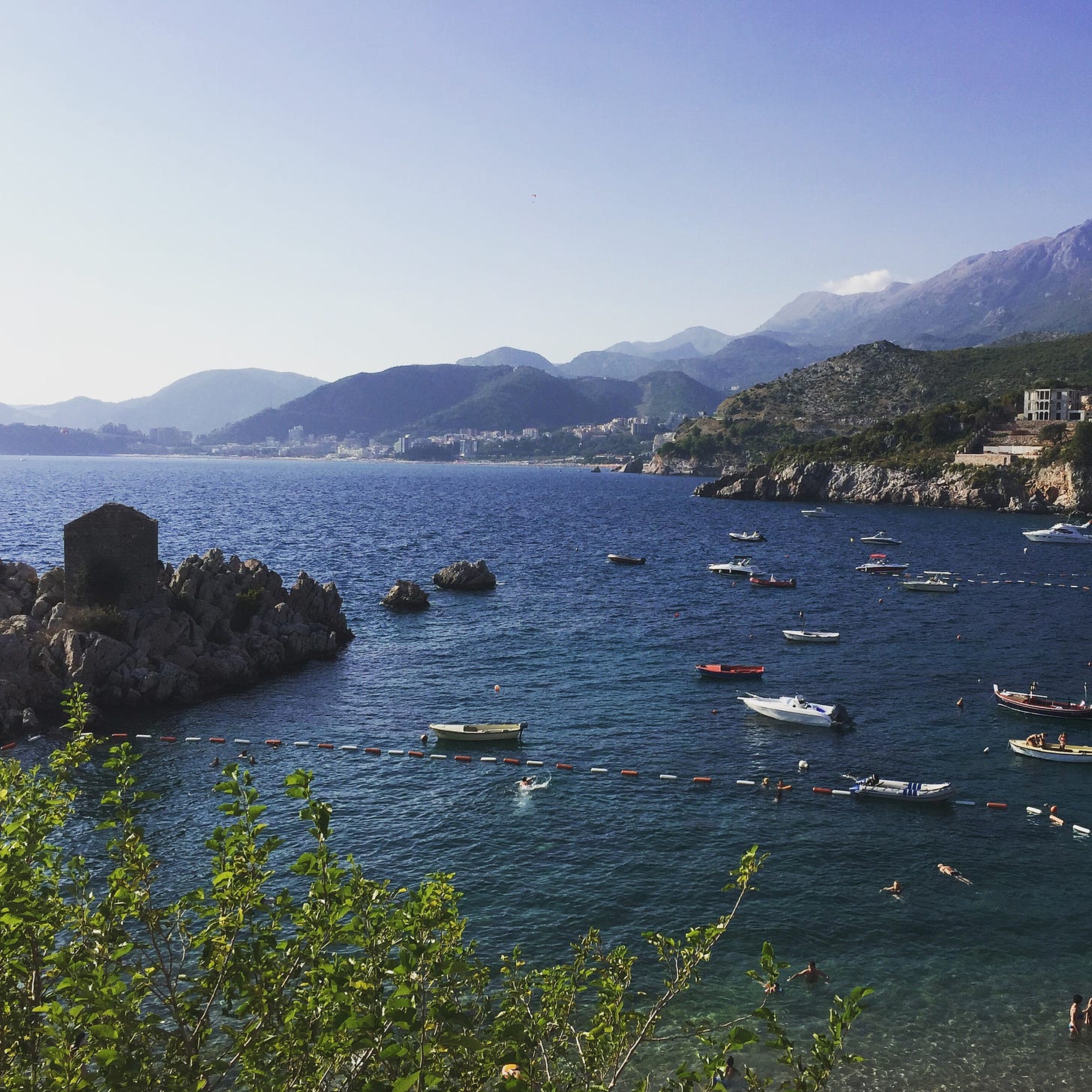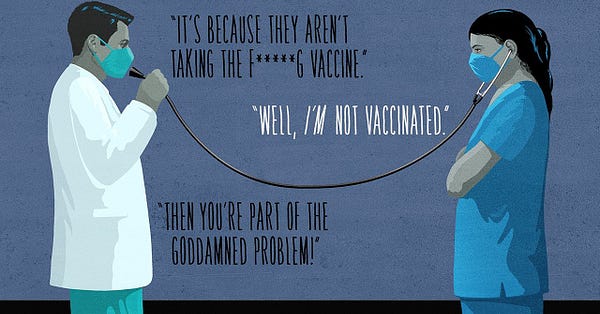TGIF, again
A trio of China stories, a Trojan horse in Belarus, talks in Geneva, history of Ukraine, what makes a regional expert, Moscow moods, planning the Holocaust, a brutally honest California covid doctor.
We made it to another Friday, and I promised you to ease off the Russia-heavy news, so today’s post is a lot of recommendations on what content to consumer. I have been reading a lot, lately. There is just so much interesting reporting out there. It’s really incredible.
If you have 30 minutes, I really recommend this BBC podcast on the most expensive strip of highway in Europe, currently being built in Montenegro by China. A 42km strip of road through admittedly very challenging terrain will cost the government of Montenegro $1.2 billion, the equivalent of 30% of its annual GDP. The funding is a cheap loan from China. The catch? If Montenegro defaults, the Chinese get to take the land. Right in the middle of Europe, in a NATO country, and the court which would hear any disputes on the contract is in…China. A lot has been written on this dubious project, but the audio report really brings everything to life. Well worth your time:

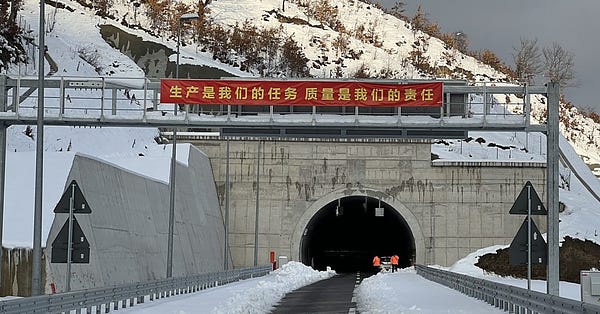
Other China-stories on my mind this morning include this stark warning about what conditions will be like for journalists reporting on the upcoming Olympics in China, and how covid contact tracing is exposing the harsh reality of economic survival for so many in China.




As every western Putin-mindreading expert sitting comfortably behind three screens in a home office with a fresh cup of tea and an open fire roaring in the background has already explained to us this week what Putin really wants, I would really recommend taking the time to read Yale history professor Timothy Snyder on the actual history of Ukraine and just so much more. This piece is beautifully written and well worth your time (I know I say that a lot, but really!):

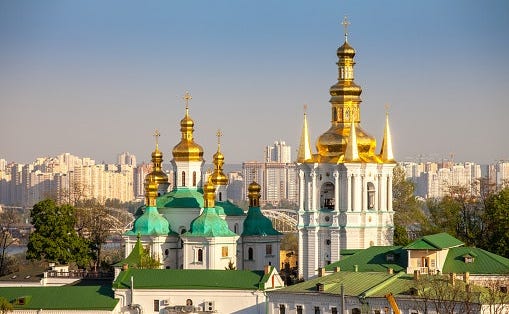
Speaking of Ukraine, today Blinken and Lavrov are meeting in Geneva. I don’t know what will happen, no one does, but I’d like to highlight news items I find interesting in the general context of all the fuss around will Putin invade Ukraine or not and what if anything can the west do to take the steam out.

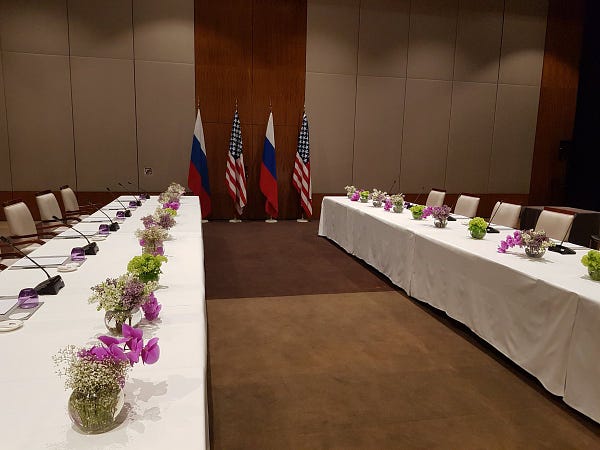
This is an excellent overview of where Russia and the U.S. are at the moment and what room, if any, might be left for manoeuvring:

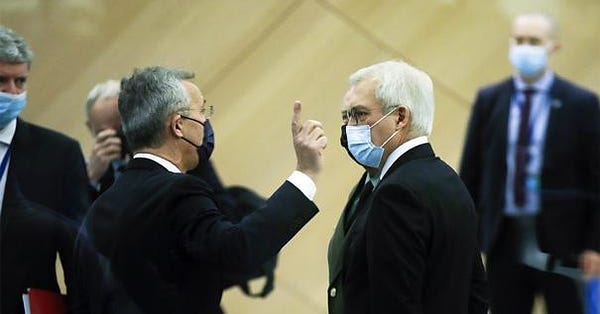
Meanwhile, it certainly sounds like some U.S. experts would love nothing more than a war. I was particularly disturbed by this WSJ op-ed.


So, what do we know as of now?
Yesterday, Russia announced major — actually huge — naval exercises to take place from now through the end of February. I’m no military expert but winter wouldn’t seem like your usual time for taking 10,000 troops out into open oceans.

Russian troops and equipment continue to arrive in Belarus, except — much closer to the Ukrainian border, to towns not marked on the official list of where joint military exercises will take place. Belarusian state TV shows Russian soldiers being greeted by Belarusian young women dressed in traditional blouses offering bread and salt:

The arrival of such a huge Russian military presence in Belarus feels very much like a Trojan horse that Lukashenko had no choice but to let in.

Lukashenko is going ahead with a referendum in Belarus on February 27 that will be a simple yes or no answer to the following question. I can’t help but think Putin is going to kill two birds with one stone here by taking de-facto control of Belarus via the Russian military presence while also positioning himself for a full invasion of Ukraine should he decide to go ahead.

Pivoting back to where Europe/NATO is in all of this, France has announced plans to send some troops to Romania (which borders Ukraine), Spain has announced plans to send some warships to the Black Sea (!), Moldova announced a state of emergency in its energy sector as Russia threatens to cut off gas deliveries, and neutral foreign ministers from Sweden and Finland will meet with NATO head Stoltenberg on Monday. I think it’s fair to say things are not exactly calming down.
Switching gears, do you remember the reports of Havana Syndrome reportedly affecting U.S. officials posted at embassies abroad (including Vienna) and in some cases even their family members? Yesterday, the U.S. government published a report in which it says it has investigated, and determined the syndrome doesn’t exist.
How very convenient. I don’t believe them for a second. The trouble for the U.S. government is if it is true, as it would appear, that their officials are sometimes silently and invisibly attacked by radio waves by a foreign power, and the U.S. doesn’t have a solution for it, it can’t in good faith send its officials to embassies across all the far corners of the earth. So what does it do? It tells them their symptoms are simply a coincidence and Havana Syndrome as it has been named does not exist. How incredibly frustrating for all involved.
The last topic I’d like to cover today is a somewhat controversial subject online at the moment, at least in German-speaking Twitterverse. Yesterday, a piece was published by Politico about how America is viewed by Germany’s so-called America experts, and included a look a recent books published by German authors on the United States.

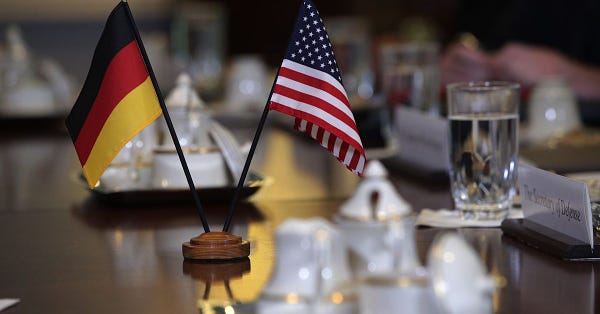
The author of the piece reached out to Annika Brockschmidt with a simple question, did you visit the U.S. or perform research there in the course of writing your book about America? The answer?

The conclusion drawn:

The historian’s formal response once the Politico story was published:

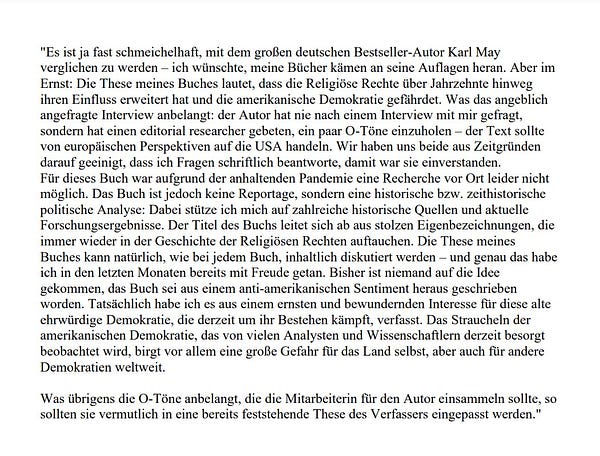
I have not read the book. The author argues she wrote it as a historian, therefore no physical visit to the U.S. was necessary. Fair enough.
So why would I even pay attention to the drama? Purely by coincidence, I had followed Annika Brockschmidt on Twitter a while back. I unfollowed her this fall, after noticing a pattern which is a personal pet peeve of mine when it comes to online behaviour, particularly when it is done by prominent people with blue ticks and tens/hundreds of thousands of followers.
I also follow a lot of U.S. accounts, including those who write about the rise of the far right and extremism in America. I noticed that sometimes I would see a regional U.S. news item in my feed posted by an American author, and then almost immediately, I would see the same story with similar commentary posted by the historian in my feed, but without re-tweeting or quote tweeting or giving credit to where you saw the story in the first place.
Now there is nothing inherently wrong with this, it’s a free internet and anyone can write whatever they like, but if I see some obscure news from Siberia, for example, I RT that post or I quote tweet it and add some commentary, for example, an English translation of what was said. I always try to amplify the original source, just like I do here in this newsletter.
So I quietly unfollowed the historian after I saw it happen a few times, because I found it annoying that she wasn’t using her platform to amplify smaller accounts whose information was useful to her in her sharing news with her followers about what was happening in the U.S. I wrote about that here days before the Politico story came out.

I am super sensitive to the topic, as for decades westerners who could barely string a sentence of coherent Russian together were given top jobs as Russia hands, while those who speak the language fluently, lived there for an extensive period of time, travel there regularly, were seen as less valuable. That has all thankfully changed, but I still remember what it felt like. Likewise, I haven’t physically been in Russia since February 2020, and I would not claim to have my finger on the pulse of what is happening on the ground and what people in Moscow really think. You have to see, feel, touch, smell, experience, breath, hear, listen, talk, interact — the internet is no replacement for on the ground research and reporting.
When you write it all out it sounds trivial, and it is. And there are plenty of high profile accounts who only share news 100% of the time as if they themselves discovered it, took every photo, heard every word of what was said, and never RT anyone else. This is nothing special.
But what surprised me more was the response to the Politico piece. German-speaking Twitter got very upset, even going so far as to accuse the author of the Politico piece of mysogyny. They argued that you don’t have to have visited outer space or Ancient Rome to write books as an academic about them. No, of course, not, because that’s physically impossible unless you are Jeff Bezos! But if you are a journalist or a regional expert (pick your poison), then I really think there is an argument to be made that you need boots on the ground. I am, for example, extremely skeptical of the shelves of Trump-Putin alarmist books that used to grace U.S. airport bookshops, all written from the comforts of American suburbia, never having set foot in Russia.
I am acutely aware of the value of in-country reporting. I will place 10x the emphasis on what is reported directly from Moscow or Kyiv over what some guy with 300k followers sitting in DC happens to think is in Putin’s brain this very second, or god forbid, what the Russian people think or want.
On that note, some insights from on the ground in Moscow, where from the sound of it, most people still do not expect war nor are they aware there might be one soon:


Gosh, that was a lot for a Friday. A few pieces for your weekend reading, and that’s it, I promise.
This NYT piece on how the Holocaust was meticulous planned on a single day by a group of middle-aged men in a villa in Germany 80 years ago.

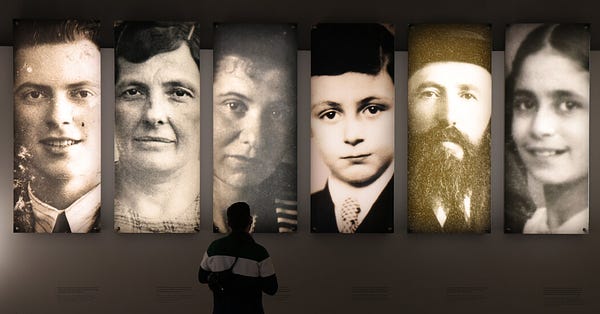
This is excellent by the Economist 1843 magazine, a blunt perspective of a covid doctor in California, with no swear words edited out:
Thanks so much for reading. Have a great weekend, and enjoy the snow if you have some. We finally have a dusting of white outside and it is so nice I might actually do something seasonal like go ice skating!




